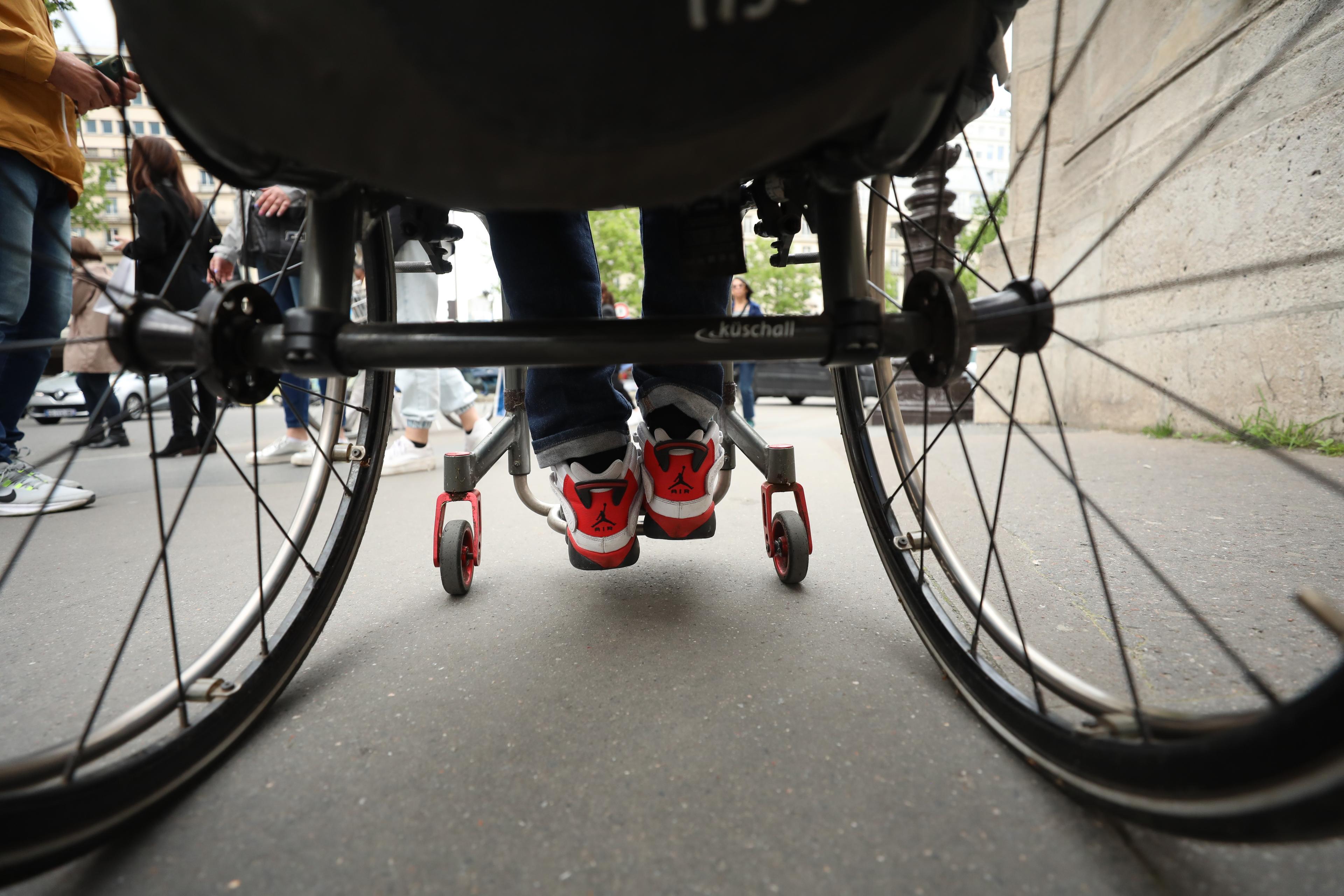A rational person, according to traditional economic models, is someone who considers all relevant information when reasoning, reaching a decision or making a judgment. In this sense, rationality allows for optimal decision-making. Yet humans are so frequently irrational that this aspect of our nature is taught in introductory psychology courses and used in marketing to turn a profit. The human brain is bounded by limited computing power. It is impossible for people to compute all the scenarios, weigh all the options, and integrate all the available information, especially given limited time to make decisions. So we tend to use cognitive shortcuts (also called heuristics) to filter incoming information. Human irrationality can be seen as partly a byproduct of these shortcuts and other filters – which can include past experience, context, emotions and intuitions.
How do these filters affect behaviour? To take one example, people are highly motivated to avoid loss, and they will reliably choose options that are framed in terms of gains more than they choose options framed in terms of losses, even if the outcomes of these choices are in fact the same. This is referred to as the ‘framing effect’. It might seem strange that people consistently fall prey to such a bias – but what about you? Would you be more inclined to agree to a surgery that you’re told has a ‘90 per cent chance of survival’, or one that’s described as having a ‘10 per cent chance of death’? The emotions engendered by a more negative framing can influence our decision-making. Similarly, people are often unduly attracted by the possibility of high gains, even if their actual likelihood is very low – as when someone plays the lottery. Cognitive biases can affect the sorts of decisions that people make regularly, from preferring an ‘80 per cent fat-free’ yogurt over one that contains ‘20 per cent fat’ to buying sensible insurance immediately after hearing about a disaster, only to cancel it later because one (wrongly) perceives the risk of disaster to have passed.
Such examples can make it seem as if such irrationality is an inevitable characteristic of human thinking. However, in the past decade or so, challenges to this idea have arisen from unexpected places. As we explained in a recent review paper, researchers have repeatedly found evidence that Autistic individuals are, on average, more consistent, less biased, and more rational than non-autistic individuals in a variety of contexts. (We use identity-first language, eg, ‘Autistic people’, as it is preferred by many people on the autism spectrum.) Specifically, many Autistic people seem to be less susceptible to cognitive biases, and therefore better able to make judgments and reach decisions in a more traditionally ‘rational’ manner.
Some studies have found, for instance, that Autistic participants are less influenced by the framing of a choice when deciding between options (the ‘framing effect’ described above). Other research suggests that Autistic individuals might have a reduced ‘optimism bias’. This is the bias wherein people tend to neglect information containing undesirable news (eg, an unexpectedly high probability of an adverse event happening), but adjust their outlook in response to desirable news (a lower-than-expected probability of such an event). The research indicates that Autistic individuals integrate information in a more objective and unbiased manner than is typical, representing a more veridical view of the world.
Consider, too, the sunk cost bias, wherein costs that cannot be recovered are nevertheless integrated into the decision-making process, leading to suboptimal choices. Imagine you have bought two non-refundable tickets to different trips, one much more costly. You are then told that you must cancel one of them. In this case, many people will cancel the cheaper trip regardless of which one they would prefer to go on – and even though they will have spent the same amount of money either way. Autistic individuals appear to be more likely to make a choice based on their personal preference rather than on an irrelevant cost.
Autism researchers and society in general have been largely focused on deficits and challenges in autism, with less regard for areas in which Autistic people might tend to outperform non-autistic people. Based on the above examples and others, it is possible that enhanced rationality is yet another part of the constellation of characteristics associated with autism (though an understudied and not well-recognised one).
It’s also possible that ‘deficits’ associated with autism might confer certain advantages. Things such as circumscribed interests or perseveration (when one repeats or prolongs an action, thought or utterance after the stimulus that prompted it has ceased) could directly or indirectly benefit some Autistic individuals. For example, the prominent climate activist Greta Thunberg has suggested that her autism contributes to her singular focus on the climate. In the case of judgment and decision-making, other apparent characteristics of autism – such as a lower reliance on prior experience when weighing incoming information – might also enable more thorough processing of information.
More specifically, some theories of brain function characterise the brain as a prediction machine: it learns from past information and experiences to create models of the world that can be used to predict what is likely to occur. This allows for quick cognitive processing and speeds perception, as we don’t have to wait for sensory inputs before acting or making a decision. Depending on the context we are in and how uncertain we are in a given moment, our reliance on past experiences and predictions versus novel incoming information may shift. Several theoretical frameworks have suggested that in autism, the balance between prior knowledge and incoming input is shifted towards the latter. For perception, reduced reliance on predictions could make incoming sensory input (even very familiar input) seem novel and unexpected.
These theoretical frameworks have posited that this shifted balance could result in high attention to detail, and even increased sensitivity to and difficulty ignoring noises (such as the monotonic humming of a refrigerator) or other sensations in the environment (the feeling of uncomfortable clothing on the skin) – all indeed commonly reported in autism. However, reduced reliance on predictions in the face of novel information could also inform enhanced rationality. For example, more equal weighing of information regardless of prior knowledge – meaning the context in which the information is presented, or past experiences – might contribute to reduced bias and more rational decision-making.
Regardless of the interpretation, elucidating strengths in Autistic people could have significant benefits. It can give us a more accurate and balanced perspective on the various Autistic characteristics. This, in turn, can lead to wider acceptance of and reduced stigma toward Autistic individuals, and could provide insight into how best to support Autistic individuals academically and in the workplace.
Each year in the United States, about 100,000 Autistic teenagers enter adulthood, and many Autistic young adults do not have a paying job. Understanding the specific strengths of individuals with autism and the ways in which they might tend to outperform non-autistic people (eg, with less biased information-processing) could be helpful for their transition into the workforce. These strengths might be especially relevant to particular work contexts. One potential example is work in departments that make hiring or promotion decisions, since bias can influence decision-making processes about matters such as who is the best candidate for a position.
Indeed, there is some evidence that Autistic individuals are more rational in their judgments about people. One way to measure this is by looking at both explicit stereotypes and implicit biases related to race and gender. Some studies have found that Autistic participants are as likely as neurotypical participants to show an understanding of race and gender stereotypes when asked (for example, the idea that girls are more likely than boys to play with dolls). However, when researchers assessed implicit bias, Autistic individuals were less likely to make rapid, stereotype-based associations between concepts than neurotypical individuals. Reduced use of stereotypes in implicit decision-making could be interpreted as a form of enhanced rationality.
Of course, just as in the neurotypical population, the experiences or abilities of one Autistic individual are not necessarily generalisable to all Autistic individuals. Moreover, it is important to consider that many of the studies finding enhanced rationality in autism have focused on a certain subset of the spectrum – those who have relatively strong cognitive abilities or language abilities. Much like in other areas of autism research, here too there is a selection bias, wherein Autistic individuals who experience more challenges, especially in cognitive performance and language, are underrepresented. Future research should take a similar strengths-based approach in examining skills and challenges across the autism spectrum and in other conditions as well.
Reframing the canonical understanding of autism has implications for our understanding of human thought and behaviour more broadly. Until now, it seems that this understanding has been limited by our use of neurotypical individuals as the reference population. The research we’ve highlighted suggests that many of the biases that we take for granted might not be so standard, illustrating the potential for fuller and more rational consideration of information. This view echoes and expands on principles of neurodiversity – the idea that conditions such as autism reflect normal variation in human characteristics. Autistic individuals show differences in ways of interacting with the world and processing information, but differences need not be deficits. While some of these differences might involve costs such as cognitive inflexibility or challenges in navigating the social world, they could also lead to a rethinking of the bounds of human rationality.








